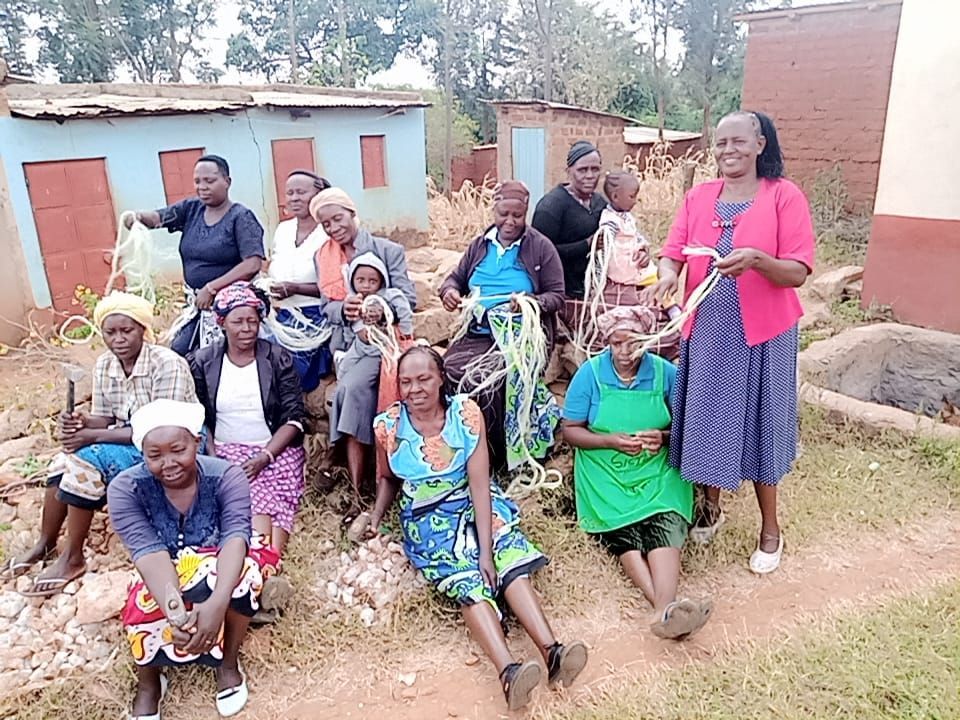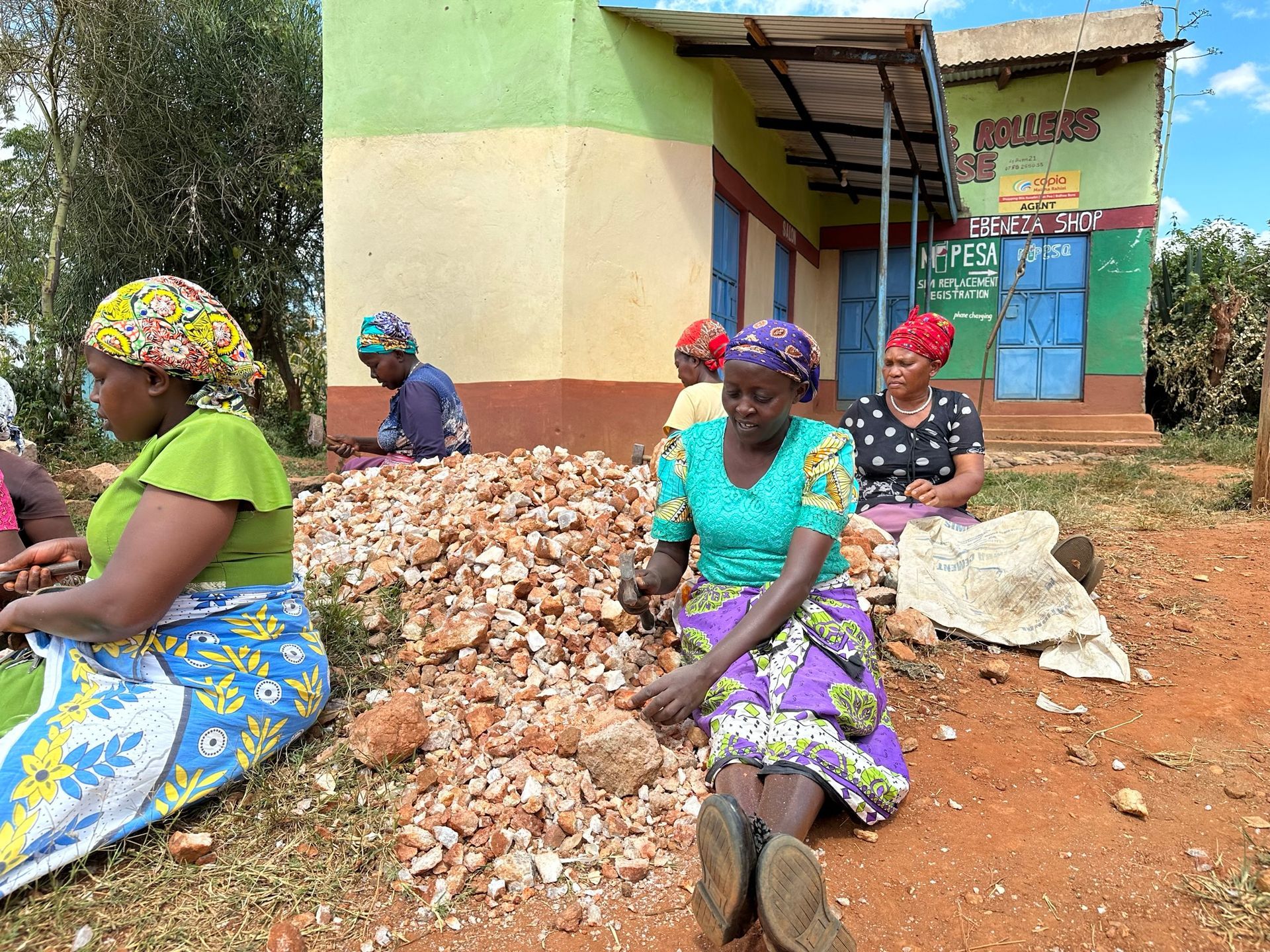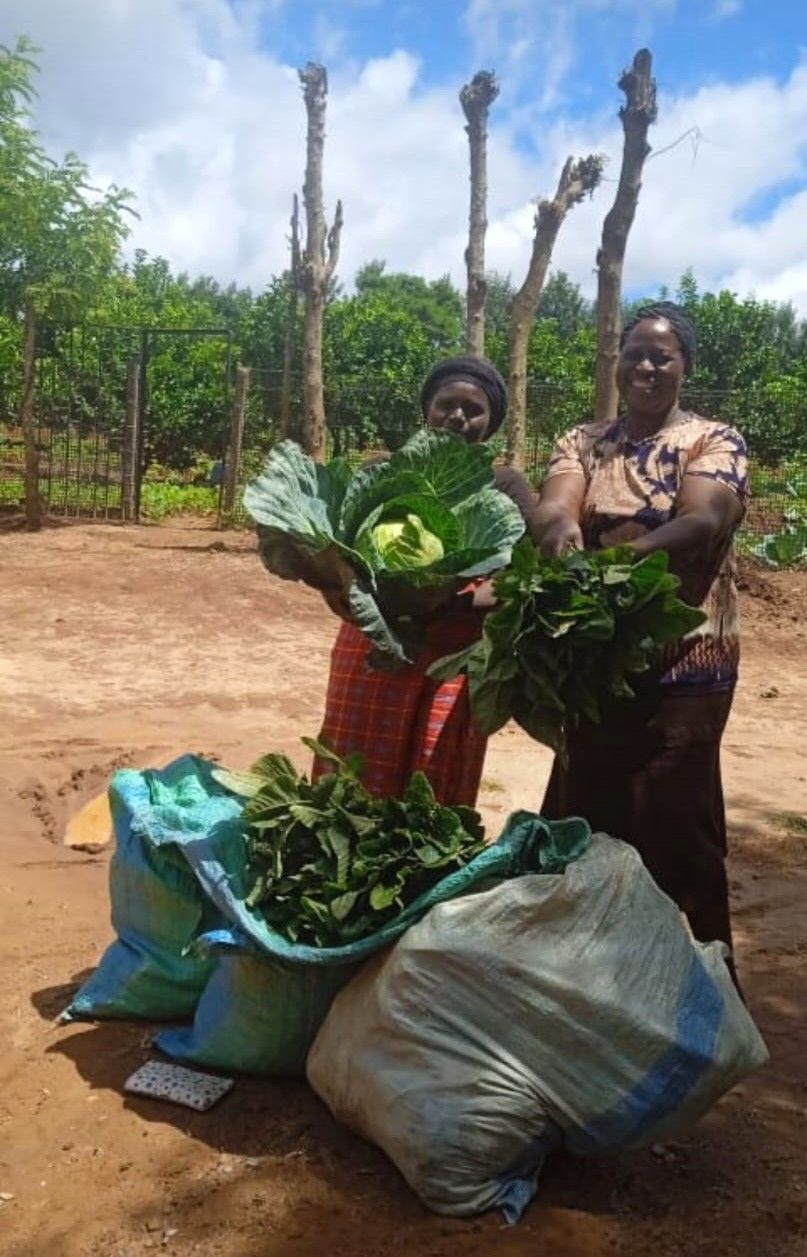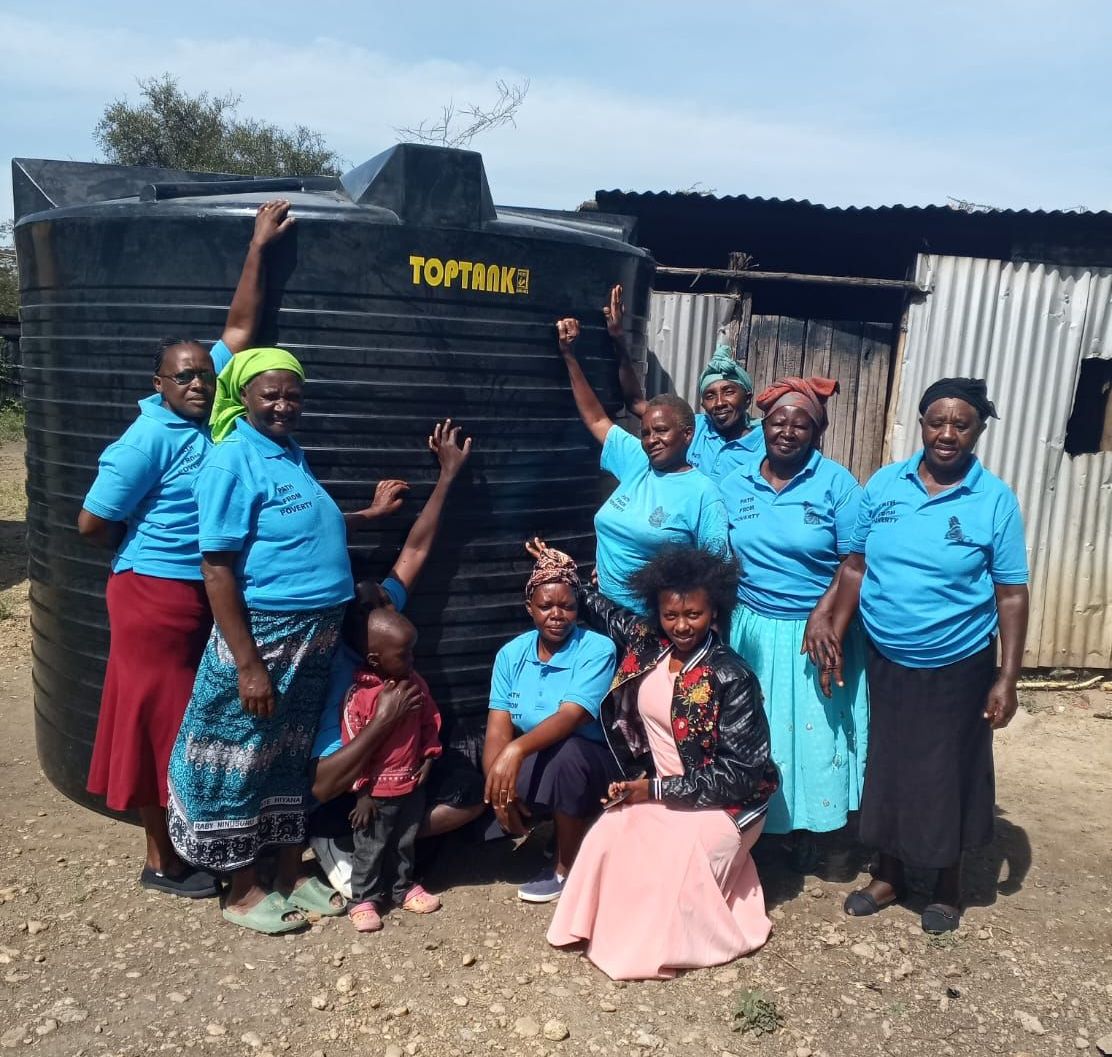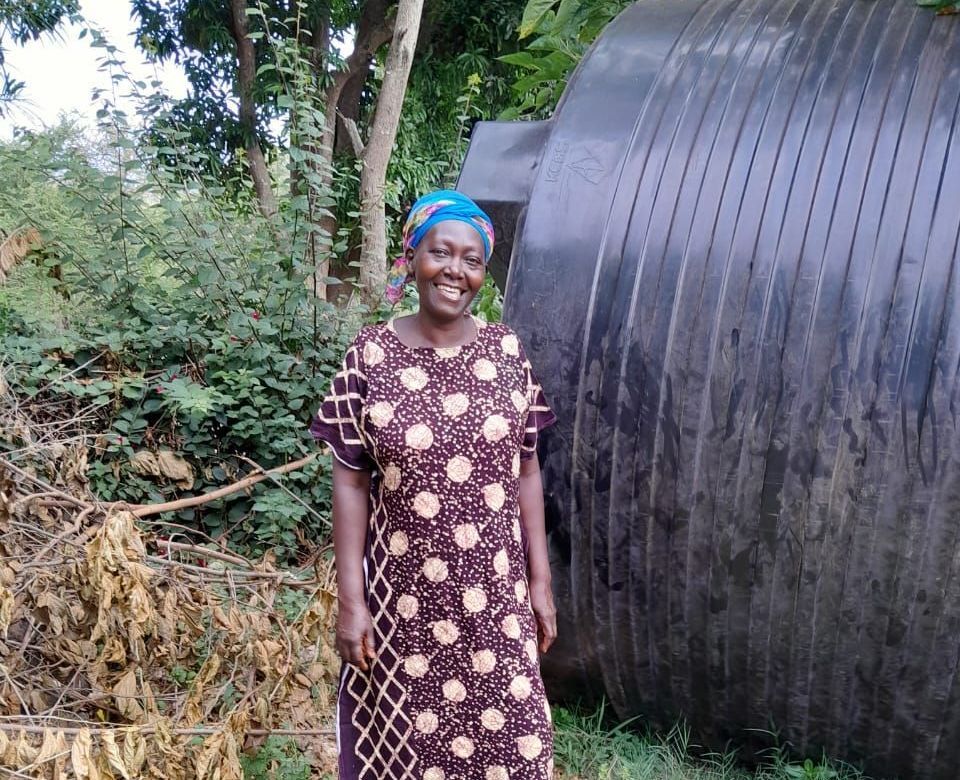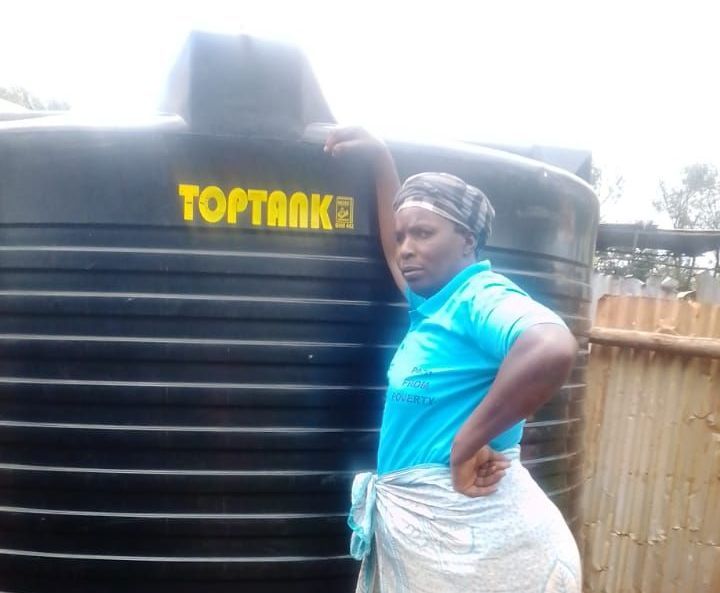Regina's Story
Work Team members met Regina on their trip to Malili
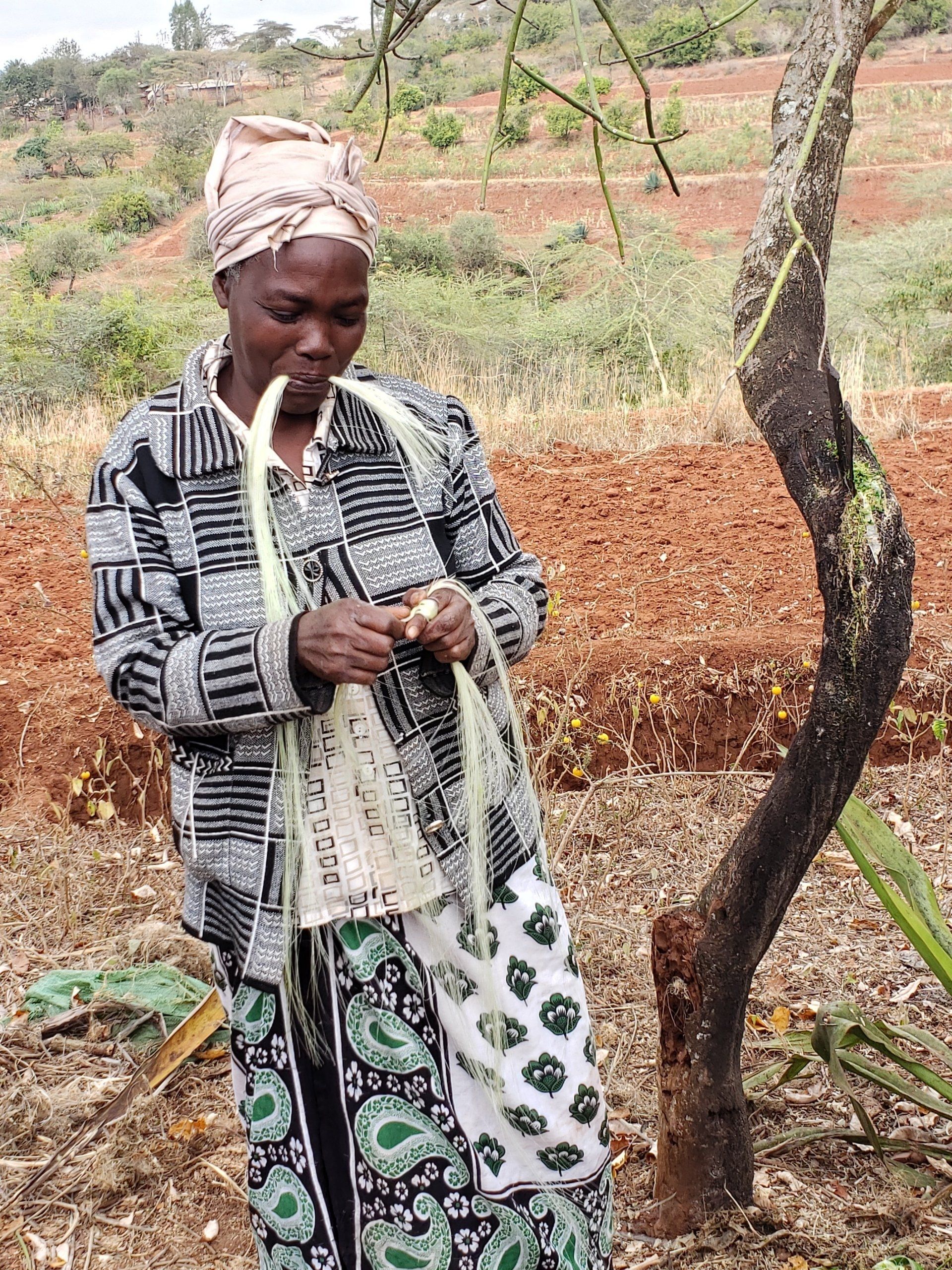
Regina is part of the Kitooni Women’s Group of the Malili Cluster, which she joined in 2019. She lives with her mother-in-law, four sons, and a 19-year-old grandson in a tiny, dark house built 40 years ago. The tin roof is filled with holes, and the rain leaks in, soaking everything. Regina’s husband is frequently away for months at a time looking for “cash work” around Nairobi. He returns when he wants, perhaps with something to contribute or perhaps not. Either way, she welcomes him back because that is what a wife does.
Regina’s only source of income is making sisal fiber ropes. Since she can only carry one jerrican, she walks 2.5 hours, twice a day, to fetch water. As Regina walks, she makes her rope, holding the rope in her mouth as a “third hand” while she braids. Sisal is mildly poisonous and even when dry, the fibers irritate her mouth. Regina has no choice but to braid rope while she walks because the rest of her day is filled with collecting firewood in the bush, cooking, and caring for the family.
Unfortunately, because many of the area women make and sell sisal rope, supply and demand has driven the price down from more than 25 shillings each to 18 shillings or less (15 cents U.S.). Regina can sell about 15 ropes each month, earning 270 shillings. Meanwhile, inflation has increased the cost of a 2kg bag of flour from 120 to 220 shillings. Chapatis, a traditional wheat flat bread, has now become a treat instead of a food staple.
Being part of a PFP group, Regina knows that when she puts the money with the group for a tank, it keeps it safe. Alone, she can’t keep it as there is so much demand and so few shillings. She would love to see her grown sons married and out of the house, but custom demands a dowry be paid to the bride’s family.
Regina’s explanation of Dowry requirements:
When a young man wants to marry, he comes to the girl’s family home. He sees how the girl is accustomed to living, then negotiates the dowry accordingly. Of utmost importance are three goats, two to cook for the negotiations and one remaining for the dowry. Beyond that, he may need a house plus an amount of money. Regina has none of these things and so it is hard on her to have her sons remain in the house unmarried, especially as it doesn’t appear they contribute much. One son and the grandson helped building the water base, and Regina might break traditional gender roles by asking her grandson to help with fetching water.
In the meantime, Regina knows that she needs to replace her house roof in the next couple months so that she can catch the next rainfall in her new tank.
“I’m proud to be in this organization,” Regina says. “Before I joined PFP, I was so lonely and had no one to talk to.”
